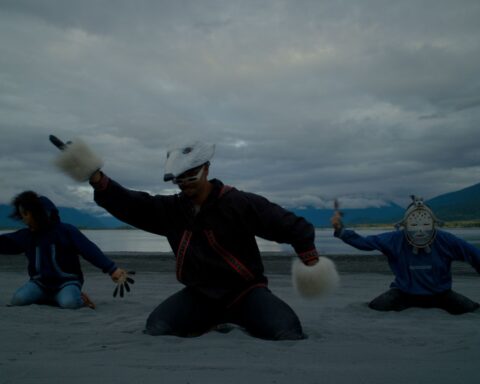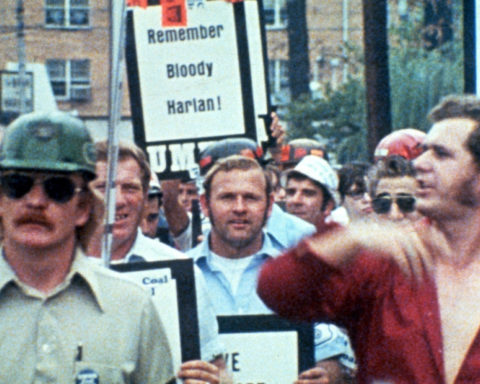Ta’ang
(Hong Kong/France, 147 min.)
Dir. Wang Bing
Programme: Wavelengths (North American Premiere)
The internal conflict in Myanmar—don’t call it a civil war—is apparently one of the longest-running insurgencies in history. Beginning with British decolonization in 1948, fighting has taken place between the Burmese army and groups representing ethnic minorities and political radicals, often alleged to be backed by places like China or, in a bizarre case, an Australian criminal. Predictably, it has also produced a massive refugee crisis.
Ta’ang, the new film by lauded Chinese director Wang Bing, gives us little of this background, limiting its contextualizing and editorialising to brief titles at the beginning and end. For the two and a half hours in between, it’s strict vérité: the film follows a few groups of refugees along the (incredibly beautiful) Myanmar–China border as they set up shelter, look for work and move from place to place. Though there is some sense of the desperation and emotional sense of loss that you would expect, the predominant impression—reinforced by the film’s duration—is one of sheer banality. The refugees eat, sleep, shoot the shit, take care of their kids. Even in the last section, as bombs are going off just over the hill from where the refugees are setting up camp, there isn’t really a sense of panic, or even stoicism; they never even lose cell reception. It’s all matter-of-fact.
It bears mentioning, in the context of a broader film landscape in which most films fail the Bechdel test, that at least half of the film’s subjects—probably more—are women. This attention also gives the director access to children, further broadening the film’s perspective. And it’s another of the film’s strengths that women are not typecast as passive, stricken victims: they tend to be the film’s funniest, liveliest characters, at one point joking about wetting their pants during a long walk. To say that the film avoids sentimental clichés feels like faint praise, but in a film about a refugee crisis that is some sort of an achievement.
Thinking about the current trends of observational cinema in both fiction and documentary, in which the modus operandi seems to be creating an intense focus on “regular people,” I wonder about the aesthetic rationale. These films, of which Ta’ang is one, seem like old-fashioned humanism to me, no different from, say, Walker Evans’ photographs from the 1930s or Edward Steichen’s 1950s exhibit The Family of Man. I admit to being skeptical of the underlying philosophy. It’s as though, by witnessing these people in all their quiet nobility and endearing personality quirks, we are supposed to somehow relate to them, and rage against some perennially undefined system that has made their lot in life worse than ours.
It’s exactly the oppressive system’s undefined nature and the consequent lack of analysis of it that I take issue with; it’s as though the increasing complexity and ambiguity of the times is being addressed not with new responsive forms but with a retreat into old ones.
I don’t want to overstate the case against Ta’ang. For what it is, it’s good: a vivid document of lived experience. But in a long-form documentary, I don’t see why observation can’t be matched with other investigative methods to produce a more complex document to more fully render the reality of the situation.
Please visit tiff.net for more information on this year’s festival.











